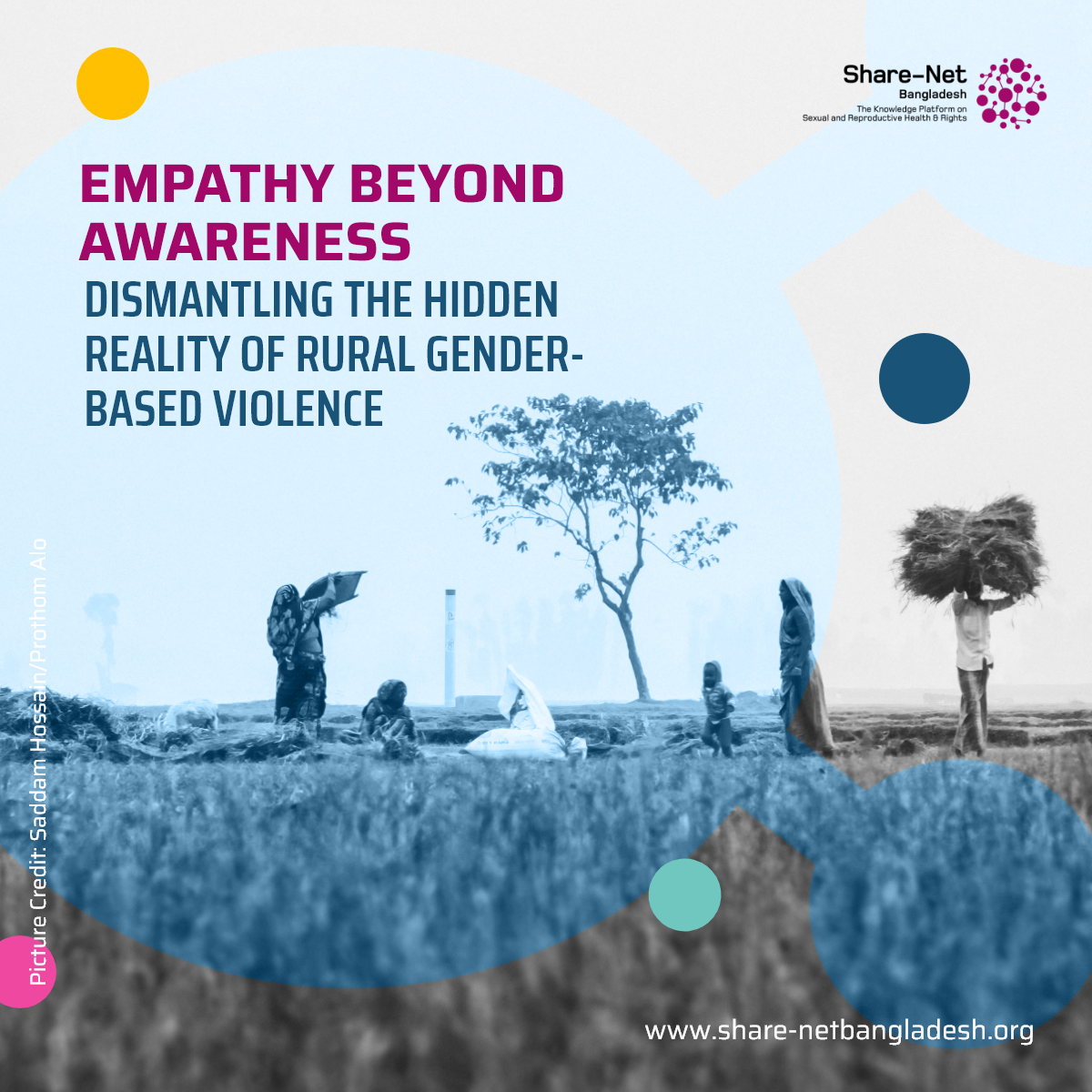Empathy Beyond Awareness: Dismantling the Hidden Reality of Rural Gender-Based Violence
Sathi (pseudonym), a young girl in a rural village of Kurigram. She is just 15 years old, forced into marriage to ease her family’s financial burden. A year later, she became a mother. Her dreams of education and a better life are extinguished. Her days are consumed by the fear of violence from her husband, a cycle of abuse that she cannot escape.
This is not an isolated story. According to a 2023 meta-analysis by UNFPA, UNICEF, and UN Women, 93 percent of women in Bangladesh either experience gender-based violence (GBV) themselves or know someone who does. In rural areas, this crisis is systemic, driven by poverty, harmful social norms, and the lack of institutional support.
Child marriage and early pregnancy, deeply entrenched in rural Bangladesh, exacerbate GBV. Nearly 51 percent of girls in the country are married before turning 18, placing them at heightened risk of abuse and life-threatening pregnancies. These practices are not just violations of sexual and reproductive health rights (SRHR); they are critical human rights issues.
The barriers to justice for survivors are monumental. Rural police stations often lack trained personnel to handle sensitive cases, and survivors face social stigma and retaliation when seeking help. Legal aid is virtually inaccessible, as the nearest specialised courts are often hundreds of kilometers away. Shelter options are severely limited, with only 21 government-run shelters for over eight crore women, most of which impose strict eligibility criteria.
The Covid-19 pandemic amplified these vulnerabilities, with reported incidents of GBV rising by 70 percent during lockdowns. The crisis exposed the inadequacies of existing support systems, including One Stop Crisis Centres (OCCs), which often lack trained staff, privacy measures, and adequate resources.
To break this cycle, a comprehensive approach is critical. Community-based interventions, such as school programs on consent and gender equality, can challenge harmful norms. Legal reforms must focus on mobile legal aid clinics and specialised rural GBV units. Additionally, shelters must be expanded with survivor-friendly policies, and economic rehabilitation programs should empower survivors to rebuild their lives.
Addressing rural GBV requires a collective effort. Government, civil society, and community leaders must prioritise SRHR, ensuring survivors access safety, justice, and dignity. The time to act is now—because every woman deserves to live free from fear.
Source: The Daily Star
Picture Credit: Kabiur Rahman Riyad/Unsplash


